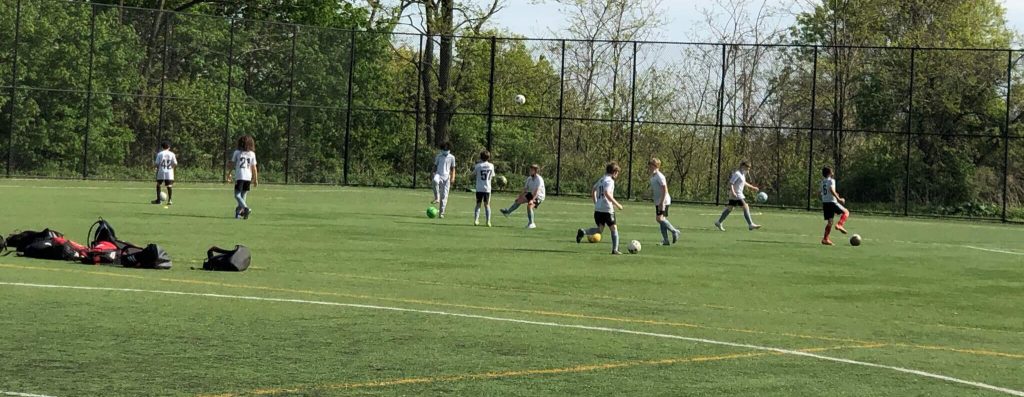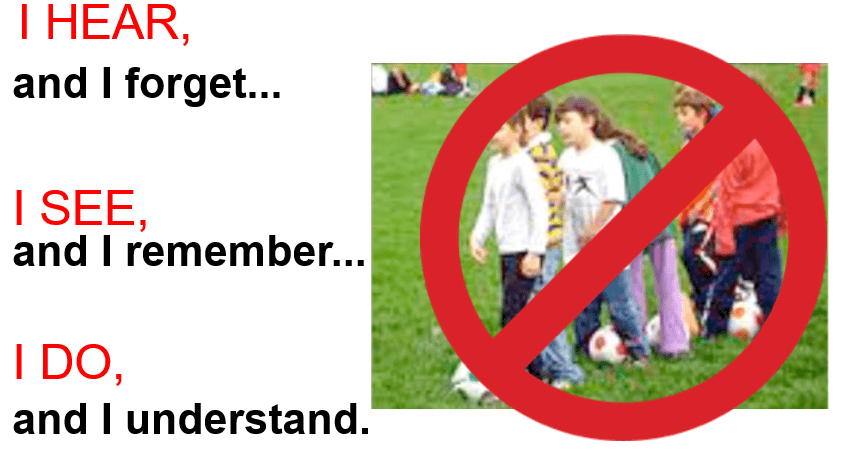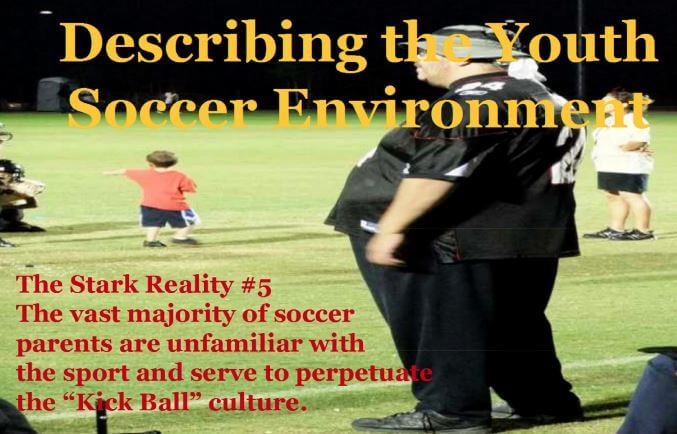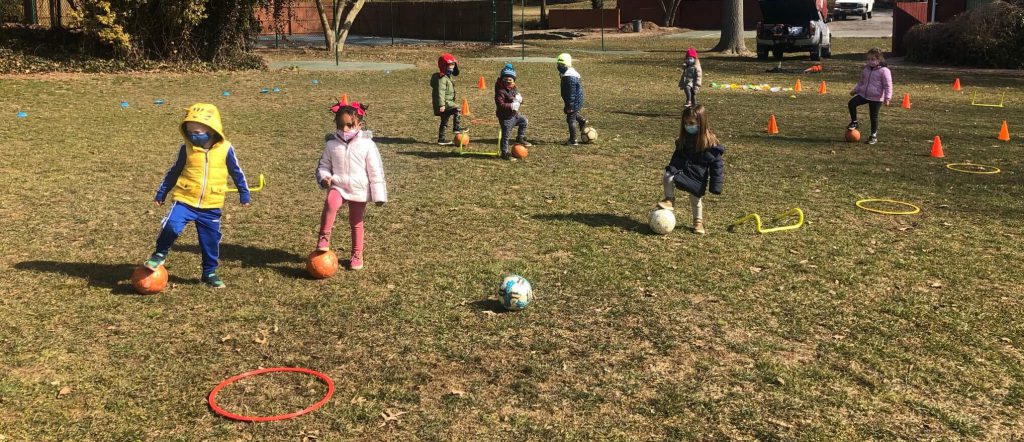The Touch

“If you are good you can play with pressure around you. Without the pressure, anyone can play a good pass. Pressure helps to show us who the good players are.” Former Barcelona Manager and Dutch Legend, Johan Cruyff.
How often have you heard the term describing a player who can keep the ball from pressure as a ‘ball hog’? That triggers the shouts ‘PASS, PASS, PASS!’ Of course, passing is one of the fundamental principles of attacking, but if kids never become comfortable with the ball, under pressure, they will never develop the skills.
The L’S of Training

I was convinced that if I taught my players how to pass the ball back and forth, they would acquire the skills of passing and receiving. How else could they learn?
That became a staple of my training, combined with 2 to 3 warm-up laps I thought my training was efficient and effective. My skill training methods often involve players being stationary and following my commands.
My players were forced to endure the destructive L’s of training – LINES, LECTURING, LISTENING & LAPS
Youth Training Reality

Are your practices controlled by you or your players? If you are shouting out commands, controlling every action and making every decision for your players, are you improving their skills?
Does this sound familiar?
Lighting A Fire
Skills are improved faster when players are in control. When they can strategize, take risks, problem solve whilst feeling they belong, creates a rich learning environment.
Your players will never acquire the skills to play soccer if they are not inspired and motivated. Fostering an environment where there is repetition and competition is key. Competition does not have to be against the opposition, they can compete against themselves.
What is essential is there MUST be PROBLEM for your players to solve, not answers to remember. This ensure there is repetition which serves as the mother of learning in soccer training.
How To Improve Skills
Co-ordination Training
For your players to improve their skills it is imperative they are exposed to coordination skills activities. The reason being (FIFA #8). The reason being, their central nervous system is still at the developmental stage making them receptive to external stimuli. As a result, coordination exercises are excellent preparation for improving skills.

4 Principles To Improve Skills Training
- Create a Problem
Many of your players will be familiar with video games. When you set problem players start to think about how they can solve it. - Progression
There need to be different levels. Moving from simple to complex problems for your players to solve. These challenges force your players to come up with different ideas. - Incentive
Build in a reward that is short-term. For example, the first team to two goals get a penalty shot, or the opposition plays a player down for 1 minute. - Game Control
Allow your players’ opportunities to pause the game. Similar to a time-out in basketball. Now they are strategizing going forward, instead of you making all the decisions.
Using video game design principles can improve your player’s skills and decision-making. Video game principles are built around strategizing which gets players to think.
Gamification is a great motivational tool because it gives another angle into players’ way of thinking. Your players can relate to controlling, strategizing and a sense of belonging.
Going Forward
Tapping into the psychology of player’s motivation is imperative to improving their skills and abilities. Repetition is the mother of learning, but when carried out through rote methods players are not inspired or motivated. Gamification principles can provide another avenue to improving their skills, but planning is necessary.
What methods have you used to improve your players’ skills?
References
Hitting The Seam, The Official Magazine of the ECB Coaches Association, Issue 413.
FIFA, Physical Preparation and Physical Development and Training. # 8
Leave A Comment